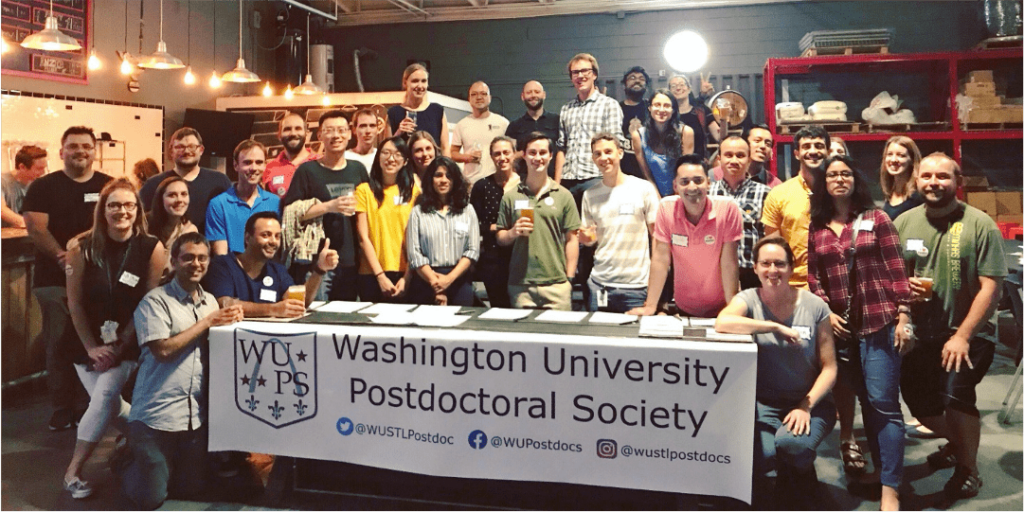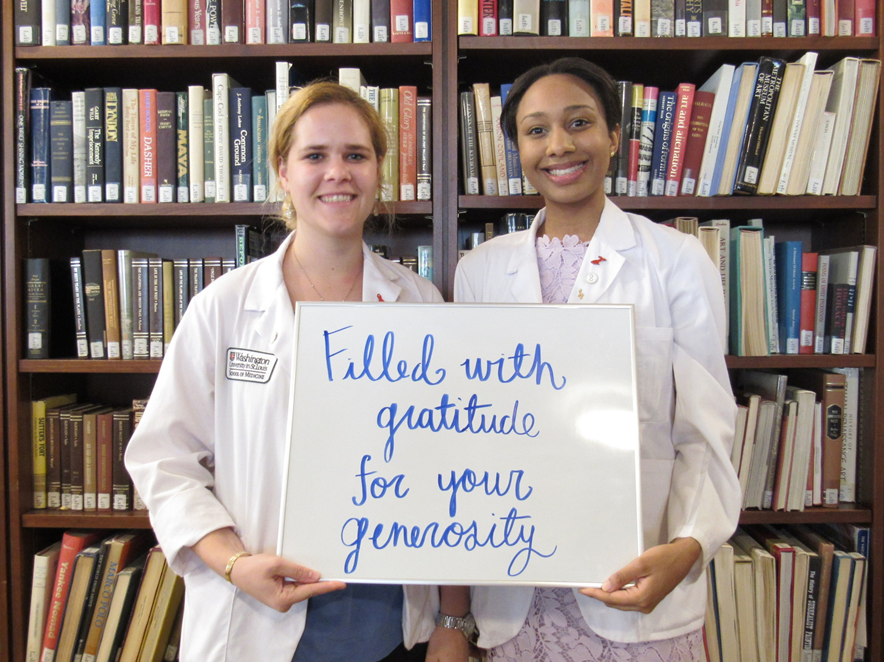Our department provides exceptional training and mentorship in neuroscience and anatomy.
We welcome undergraduate and graduate students, postdoctoral scholars and visiting scientists to train with us. Our faculty are dedicated to advancing the careers of their lab members and are celebrated instructors of anatomy, histology, cellular and molecular neuroscience, and systems neuroscience.
Learn more about
- Pre-doctoral training (high school, undergraduate, and post-bacc)
- Graduate training
- Postdoctoral opportunities
Postdoctoral research

Postdoctoral researchers are supported by the Office of Postdoctoral Affairs, which works in collaboration with the WashU Postdoc Society.
Anatomy Postdoctoral Teaching Program
Initiated in 2014, the Anatomy Postdoctoral Teaching program has established WashU as one of the leaders in postdoctoral anatomy education training. Our postdoctoral teaching fellows are trained to become exceptional anatomy teachers and have the opportunity to contribute to the innovative content design and instruction of medical gross anatomy under the mentorship of our collaborative teaching team.
The anatomy postdoctoral researchers have the opportunity to collaborate with the diverse community of researchers in our department, which includes the fields of biological anthropology, evolutionary biology and neuroscience. To date, our Anatomy Postdoctoral Teaching trainees have had a 100% success rate in moving on to anatomy faculty positions across the country.
Established in 1910, our anatomy program remains a fundamental cornerstone of our teaching mission. We prioritize collaboration and best practices derived from evidence-based learning science in our teaching.
Graduate programs
PhD
Graduate students in the department are enrolled in various PhD programs, including
Most graduate students in the Department of Neuroscience are members of the Division of Biological and Biomedical Sciences (DBBS) programs. This is an umbrella PhD program that was launched in 1973 and has successfully served as an inspiration for numerous cross-disciplinary PhD research programs nationwide.
There are 12 distinct and autonomous PhD programs within the DBBS, with the Neuroscience Program among the largest. DBBS students have access to 550+ faculty mentors across the School of Medicine. Department of Neuroscience faculty also host PhD students from many of the different DBBS programs.
WashU offers specialized pathways for graduate students, including:
- Cognitive, Computational and Systems Neuroscience Pathway (CCSN)
- TriMED Pathway in membrane excitability and disease
The Cognitive, Computational and Systems Neuroscience Pathway (CCSN) is a specialized curriculum available to students pursuing a PhD in neuroscience, psychological and brain sciences, biomedical engineering, or other brain-related discipline at WashU, including students in the Medical Scientist Training Program.
The TriMED Pathway is a two-year program open to any pre- or postdoctoral trainees with interest in membrane excitability and diseases.
MD/PhD
The Medical Scientist Training Program (MSTP) is the largest MD/PhD program in the country, training successful physician scientists for careers in academic medicine, government and industry. Many of its student members pursue degrees in neuroscience and training in our department.
Established in 1969, the program has been funded by the NIH since 1970 and receives the largest predoctoral training grant nationally.
MS
Faculty members in the Department of Neuroscience have advised master’s students in Biostatistics and Data Science, an 18-month program that combines data science education with practical experience in biomedical and genomics research.
Predoctoral training
Postbacc
For baccalaureate scholars, the Neuroprep program at WashU offers a two-year training experience within a lab, along with professional skills, scientific techniques and science communication instruction.
Undergraduate
Undergraduate students can gain neuroscience research experience over the summer through the WUSTL ENDURE program.
High school
Local high school students have opportunities to join a lab at WashU for the summer through the Young Scientist Program.
Excellence in teaching and training
We play a key role in medical education in the areas of medical gross anatomy, histology and neuroscience. Our department trains all MD and MD/PhD students at the School of Medicine in anatomy. We have also played a leading role in the new Gateway Curriculum, which began with the entering medical class of 2020.
The Gateway Curriculum integrates foundational science with clinical application, health systems science and community engagement to facilitate the success of our trainees as physicians, scientists, educators and advocates.
Our faculty have received numerous institutional honors for teaching excellence, including: the Samuel R. Goldstein Leadership Award in Medical Student Education, the Loeb Fellowships for Teaching Innovation and the Distinguished Service Teaching Awards, nominated by students in the School of Medicine.
Career educator opportunities
WashU Medicine offers many additional exciting opportunities for career educators, including teacher training programs, workshops and individualized feedback offered through the Academy of Educators.
Educational outreach
Outreach to high school and undergraduates is another priority of our education mission. We want to encourage an interest in pursuing careers in science and medicine.
Body Donor Program

Our department also coordinates the university’s Body Donor Program, which allows individuals to provide an important and very personal gift to the School of Medicine.
Every year, the medical students organize a body donor ceremony to publicly honor the generous gift body donors and their loved ones make to advance medical education and biomedical research.